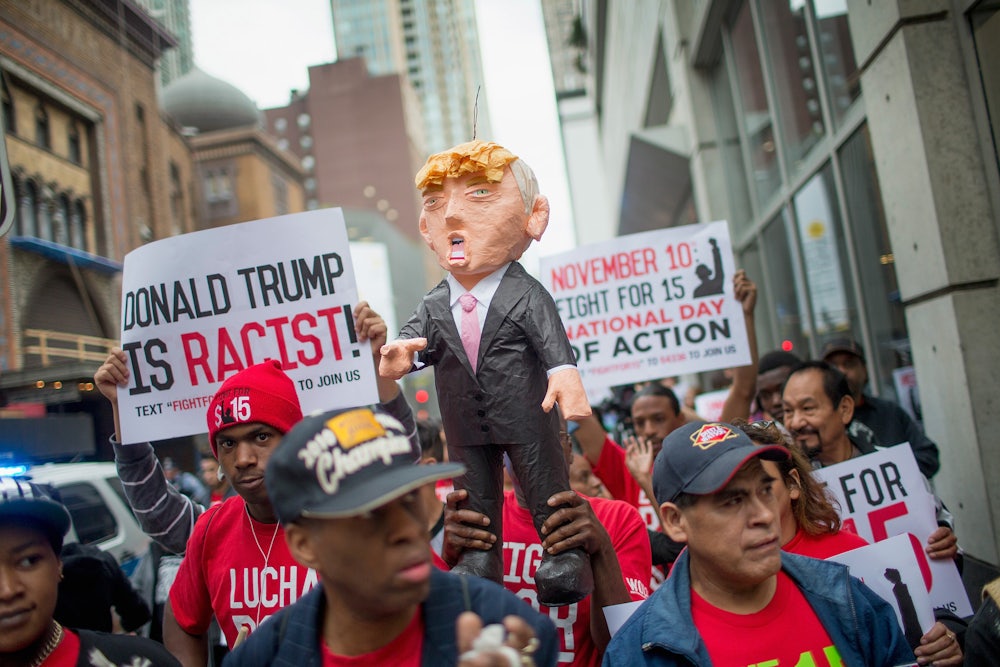Category: Article
Think Campus P.C. Is Out of Control? Look at the Military.
Identity Heft: Why the Politics of Race and Gender are Dominating the 2016 Election
The Politics of Mass Incarceration
10 Million Americans Switched Their Race or Ethnicity for the Census
The inconsistencies complicate the Census Bureau’s longtime attempts to improve accuracy of such data
Almost 10 million Americans changed how they identify their race or ethnicity when asked by the Census Bureau over the course of a decade, according to a new study, adding further uncertainty to data officials already consider to be unreliable.
Using anonymized data for 162 million Americans who responded to census surveys in 2000 and 2010, researchers at the University of Minnesota and the Census Bureau concluded that self-identified race and ethnicity are fluid concepts for millions of Americans.
Being colorblind to race is not the answer
 Keith Maddox and Sam Sommers, associate professors at Tufts University, speak on racial stereotyping and its effects on employment. They discuss the research behind claims of “colorblindness” and how this thinking is ineffective.
Keith Maddox and Sam Sommers, associate professors at Tufts University, speak on racial stereotyping and its effects on employment. They discuss the research behind claims of “colorblindness” and how this thinking is ineffective.
“Stereotype threat is real. Know the source of anxiety and work to diffuse it. Facing your anxiety can have long-term benefits. Make implicit processes explicit [and] strategize to minimize their impact. Understand yourself and your audience. It’s OK to talk about race … even necessary.”
Click here to read more.
Who Gets To Be A Superhero? Race And Identity In Comics

The X-Men comic franchise is a story of a minority group struggling with discrimination due to their superhuman mutations — a sci-fi allegory that illustrates the troubles of real people dealing with bigotry regarding race, sexuality, health and a host of other social issues. However, many readers note that the comics fail to actually depict the people that face real-life discrimination, and instead include mostly straight, white men.
Neil Shyminsky, an academic who’s written about the X-Men‘s complicated relationship with real-life racism:
[He] argues persuasively that playing out civil rights-related struggles with an all-white cast allows the white male audience of the comics to appropriate the struggles of marginalized peoples … “While its stated mission is to promote the acceptance of minorities of all kinds, X-Men has not only failed to adequately redress issues of inequality – it actually reinforces inequality.”

—
Click here for the rest of the NPR article.
More about Race & Racism in Marvel Comics
Are People Racist against Black Pets?
“Black Dog Syndrome” the phenomenon that dark-furred canines are less likely to be adopted and more likely to be euthanized than their lighter-furred counterparts. Animal welfare experts believe that the discrimination arises from a combination of factors, from being easily overlooked in the shadows of a shelter, to a superstitious, negative cultural association with dark pets.
Click Here to read more.
Malala Yousafzai and the White Saviour Complex

“Malala’s message is true, it is profound, it is something the world needs to take note of; education is a right of every child, but Malala has been used as a tool by the West.”
This Huffpost article examines Malala’s rise to international recognition as part of a history of the institutionalized, racist narrative that has been used by journalists and politicians to quell the guilt of the white man and justify the West interfering in other countries. Part of this narrative is the demonization of the non-white Muslim man, who is portrayed as a savage without the capacity for reasonable negotiation, leaving the West with no choice but to resort to violence, war, drone strikes, etc.
Click here to read the long form of the article.
This article resonated with me because, while I admire Malala’s spirit and message, it always bothered me that she was getting immense amount of Western attention when there are hundreds of thousands just like her who are overlooked. Why was this one girl singled out? What about the others that have undergone similar abuse, not only by those we mark as enemies and extremists, but by our own soldiers? Why does we choose to focus only on the brutality of the Taliban, but not on our own nations’ contributions to the conditions by entering into war and destabilizing the regions and making them vulnerable to groups like the Taliban?
Aziz Ansari on Acting, Race and Hollywood

The hilarious Aziz Ansari recently wrote an article for NYTimes about the lack of opportunity for PoC actors in the entertainment industry. He notes that even when the rare non-white character is available, the challenges of casting tend to lead to either a white-washing of the role or to the casting of a white actor in black/brown/yellow-face.
“Even at a time when minorities account for almost 40 percent of the American population, when Hollywood wants an “everyman,” what it really wants is a straight white guy. But a straight white guy is not every man. The “everyman” is everybody.”
On Facebook, Ansari calls for more effort on the part of producers to cast non-white actors to represent diverse roles: “We are all more sophisticated, compelling, and interesting than our ethnicities, accents, and stereotypical jobs. Let’s see that on TV and film.”
Click here to read the full article.
Ansari’s been on a roll tackling Race in America; during his Tuesday night interview with Stephen Colbert on The Late Show, Ansari pointed out the rare 50% percent diversity rate of a white guy and an Indian guy sharing the stage… “an all-time high for CBS!” ???




